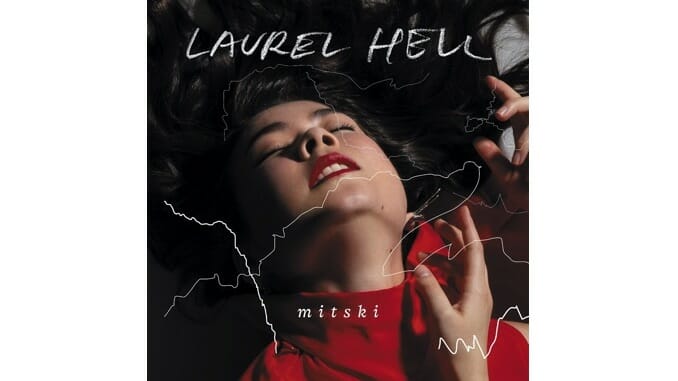Mitski’s Laurel Hell Succeeds in Spite of Its Identity Crisis

Mitski is always beckoning, no matter how she may recoil. Her work stacks contradictory compulsions: She wants, and wants to be wanted; at any moment, she’ll offer herself up, or be taken, or take. She has all the power, and none. She can’t have enough or be enough for even herself.
A laurel hell, the namesake of her latest album, is a maze where thickets of beautiful flowers grow knotty and impassable, the plants poisonous. Laurel Hell also evokes resting on one’s laurels—getting lazy or complacent about future achievements because you’re focused on past success. It’s almost ironic to consider this ’80s-electro-rock turn unfinished or lax, but such self-criticism is ingrained in Mitski’s work. As she wades into the maze of performance, she’s continually choked by her own ceaseless desire, the enticing flowers disguising the plant’s vicious, toxic acid.
Laurel Hell encapsulates the parasitism inherent to performing for consumption and then being consumed. Videogame-glitchy track “Love Me More” is a nod to toxic fandom—something that contributed to Mitski’s departure from social media—as well as the music industry churn. Twinkling synths emulate the inevitable climb: releasing art for yourself, needing fans’ love to buoy that art, and ultimately becoming overwhelmed by that very love.
The drug of ambition necessitates this cycle, but it leaves the creator vulnerable. To avoid being fully exposed, Mitski refuses to define Laurel Hell’s narrator. In opener “Valentine, Texas” (“Who will I become tonight”), she lands on someone “my sweetheart’s never met.” There’s a “sex god” in “Stay Soft,” and a stubborn artist on “Everyone.” On “I Guess,” Laurel Hell again submits to “learn to be somebody else.”
-

-

-

-

-

-

-

-

-

-

-

-

-

-

-

-

-

-

-

-

-

-

-

-

-

-

-

-

-

-

-

-

-

-

-

-

-

-

-

-








































